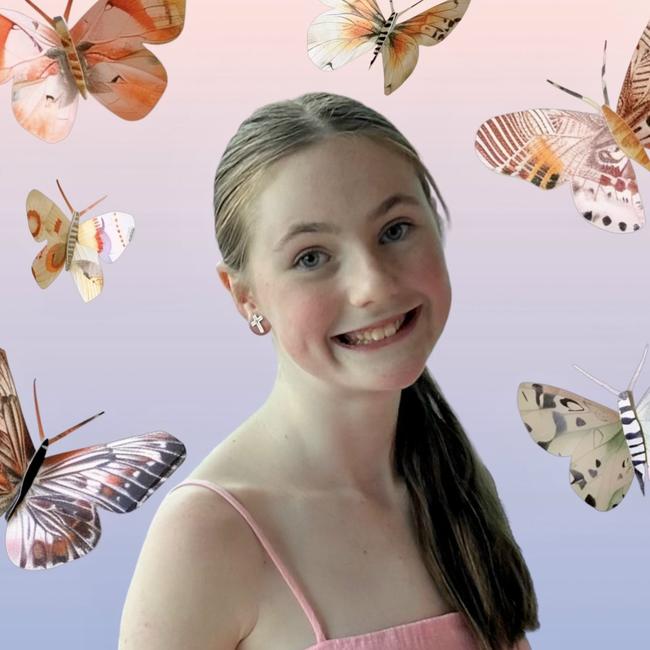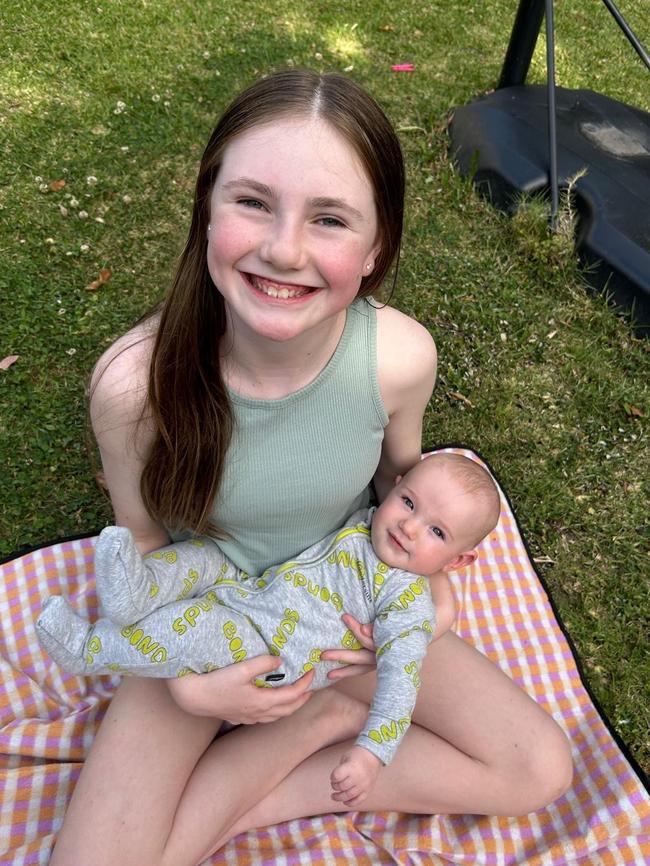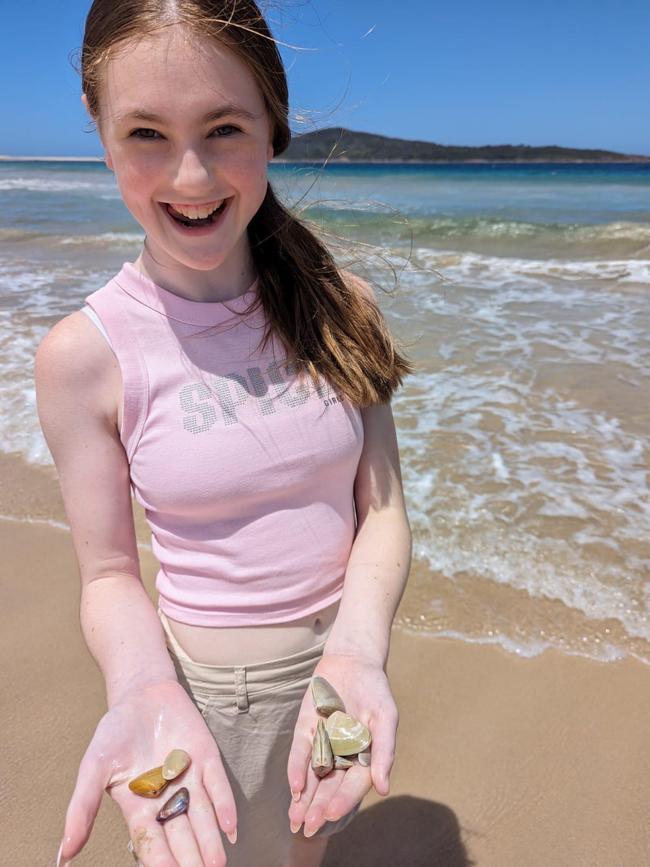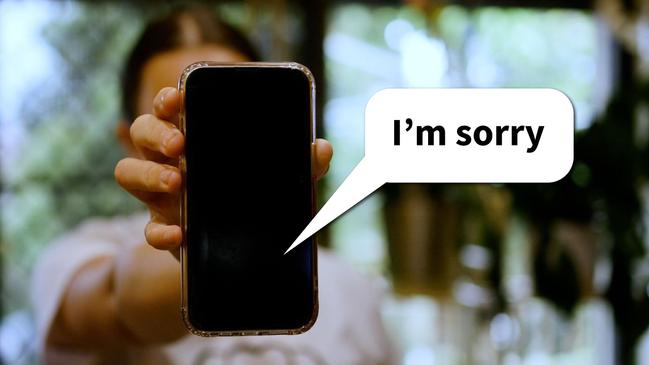Charlotte’s Wish documentary: Ava reveals the final message she got from her friend Charlotte O’Brien
On the night of her suicide, Charlotte O’Brien poured her heart out to her friend Ava, with the exchange ending on just two words.
NSW
Don't miss out on the headlines from NSW. Followed categories will be added to My News.
For five frantic minutes Ava sat in her bedroom staring at her phone, willing her friend Charlotte to message back, just like she said she would.
She already had a knot in her stomach because Charlotte had been crying on the phone.
Charlotte, 12, told Ava, also 12, she was going to have a shower and then would be back. The message that finally landed filled Ava with panic.
“She wrote ‘I’m sorry’ and then she was gone.
WATCH CHARLOTTE’S WISH DOCUMENTARY IN THE VIDEO PLAYER ABOVE
The brave Year 7 student from suburban Sydney couldn’t contain her tears when she relayed the final conversation she had with her online friend.
Ava was the last person to speak to Charlotte O’Brien before she took her own life on September 9 this year.

Charlotte left suicide notes telling her mum to share her story and raise awareness.
“On the night of … she was sad, so I called her and I was like ‘hey what’s going on?’ And that’s when she told me there was stuff like a group chat being made about her, and she was telling me how they were saying she was fat and ugly and she should go kill herself, and I was like ‘that’s not true, you’re not none of those, don’t believe them’.
“She was still crying and she said she was going to have a shower and I said ‘call me back in like five minutes’.
“I waited that five minutes and then I just got ‘I’m sorry’.”


Ava went to her sister and told her about the message she had received from Charlotte and that she was worried because her friend had been crying.
“She told me to message her saying that she was scaring me and if she didn’t reply I was going to have to call the police,” Ava said.
“And then after I did that I stayed up pretty late that night just messaging with another one of my friends and saying like ‘Charlotte, please answer, we are really worried’.”
The next day Ava asked another girl she knew at Charlotte’s school whether her friend had arrived that day.
She hadn’t.
“I told Dad I knew a friend that killed themself,” Ava said.
Ava spoke out for the Charlotte’s Wish documentary, with her dad by her side, because she said she loved Charlotte and her friend “wanted everyone to know”. They asked to keep Ava’s face obscured for pictures and video, but wanted her words to be heard.
“She didn’t want it to happen to anyone else and I don’t want it to happen to anyone else,” Ava said.
The girls first met online when Charlotte reached out to Ava on Snapchat, thinking she was an Ava in her class.
“When I saw her name pop up I thought she was a girl from my class called Charlotte so I added her back,” Ava said.
“Then she sent me a photo of her face and I said “That’s not the Charlotte that I’ve been thinking of’.
“From that night we got closer, we started to tell each other everything that was going on at school, like if we were having friendship dramas.

“She started telling me what these girls were doing to her and I was like just trying to do as much as I could for her as someone who didn’t know much about her.”
Ava was reassuring her new friend, telling her that she was “an amazing person” and “never anything that those girls told her that she was”.
But, she said she felt Charlotte was already so affected by what people were saying to her that “it was just too far” by the time they met and “no amount of reassurance could have helped”.
If she could talk to Charlotte today she would say: “I am going to get justice for you and every other girl out there being bullied because no one should have to lose a child and no one should have to be bullied and think the only way out of it is taking their own life.”
Professor Ian Hickie, health and policy co-director at The University of Sydney’s Brain and Mind Centre, is a global leader in mental health research and says: “Talking openly with kids about the impacts of self-harm and suicidal behaviour is essential to reducing the risks.”





